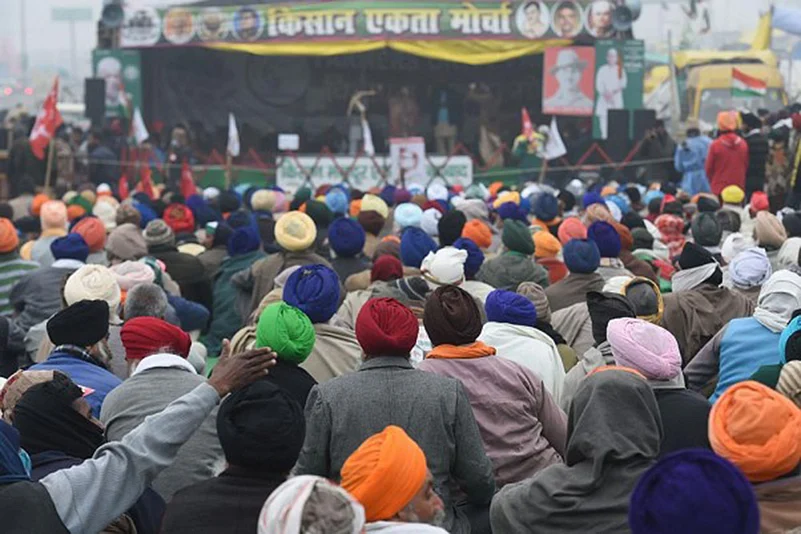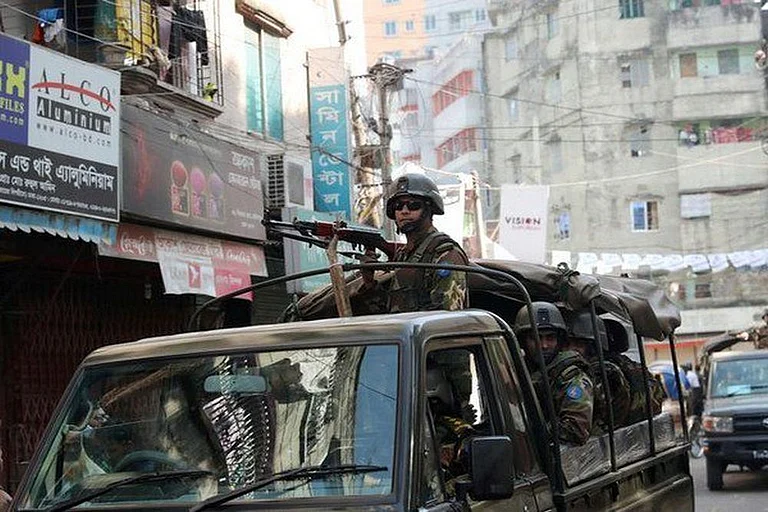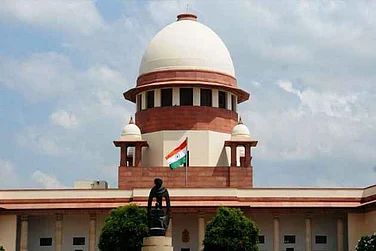Farmers agitating against the Centre’s new agriculture legislations will march towards Parliament on Budget Day.
Different groups of farmers from various protest sites will head towards Parliament on February 1 to protest the Centre’s farm laws, farmer leader Darshan Pal said on Monday.
Meanwhile, the protesting farmers will also take part in a tractor parade in the national capital on Republic Day.
"We will march to Parliament on foot from different locations on Budget Day on February 1. As far as tomorrow's tractor rally is concerned, it will give the government an idea of our strength and they will know that our agitation is not just limited to Haryana or Punjab but it is a nation-wide agitation," Pal said.
Every march will be peaceful just as the movement has been so far, he added.
“The farmers who have come for the tractor parade will not go back now and will join the protest. The agitation will continue till our demands are met. Our stand remains the same," Pal told a press conference, sharing the farmers’ plans to intensify the protest.
Thousands of armed personnel have been deployed at the Rajpath and at several border points of the national capital which has been brought under a multi-layered security cover in view of Republic Day celebrations as well as the proposed tractor parade by farmers on Tuesday.
Protesting farmer unions opposing the three contentious farm laws said their parade will not enter central Delhi and it will start only after the official Republic Day parade concludes.
The unions claimed that around two lakh tractors will be seen at the parade which will move into the city from three border points --- Singhu, Tikri and Ghazipur (UP Gate).
Enacted in September last year, the three farm laws have been projected by the Centre as major reforms in the agriculture sector that will remove middlemen and allow farmers to sell their produce anywhere in the country.
However, the protesting farmers have expressed apprehension and claimed that the new laws would pave the way for eliminating the safety cushion of minimum support price and do away with the 'mandi' (wholesale market) system, leaving them at the mercy of big corporates.
(With PTI inputs)


























